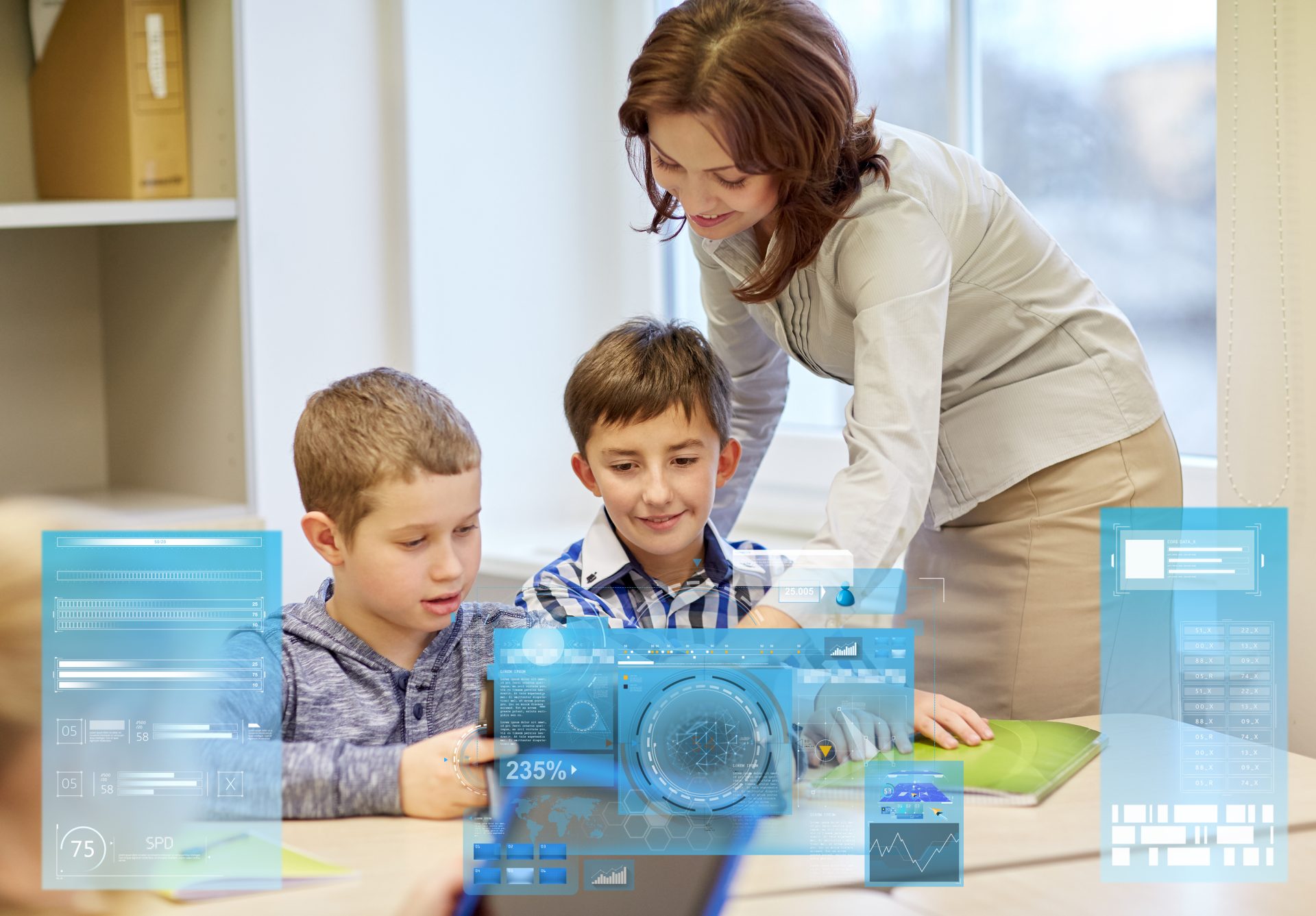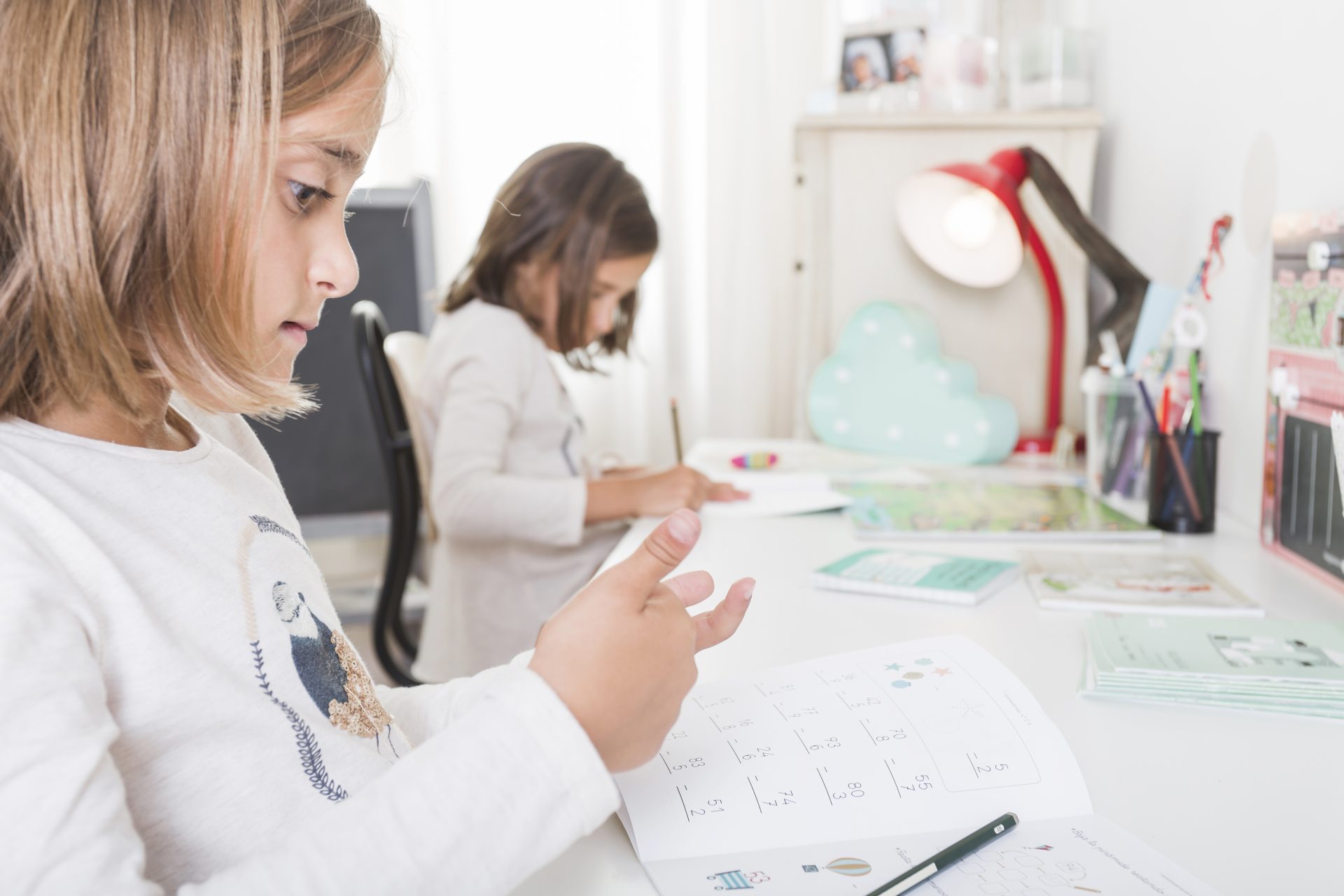Contents
Many students are choosing online elementary schools. Online education has many benefits but also challenges. Parents and students need to handle these challenges to succeed. Some parents find online education difficult and don’t know how to help their child. We’ll provide tips to help parents support their children in online learning.

Online elementary schools provide elementary education over the internet. Students learn, complete assignments, and interact with teachers and classmates digitally. Parents are more involved in their child’s education than with traditional schools. We’ll discuss what parents do in online education. We’ll give tips on how parents help their child succeed.
Understanding the Parent’s Role in Online Elementary School
|
Parents, Take Note
The research “Parents’ Role in Supporting Their Children’s Online Learning Process” was conducted by Aam Alamsyah. The research explores the role of parents in supporting their children’s online learning process during the pandemic. Key findings of the research include:
|
Parents in online elementary schools have several roles. We’ll cover five of these roles and what parents need to do to help their child succeed and enjoy learning online.
Facilitator
Parents act as facilitators by setting up a dedicated study space and making sure their child has the tools needed for online learning. This organized environment helps children stay focused and reduces distractions.
Motivator
Parents act as motivators by setting clear goals and expectations, providing positive reinforcement, offering support with challenges, and celebrating student’s achievements. This helps students maintain a positive attitude toward learning.
Mentor
Parents act as mentors. Parents guide their child through difficult subjects and help them solve problems. They teach children how to tackle challenges on their own and boost their confidence by offering support when needed.

Monitor
Parents act as monitors. Parents track their child’s progress by checking assignments, grades, and staying in touch with teachers. This keeps the child on track and ensures they get help if they start to struggle.
Social Coordinator
Parents act as social coordinators. Parents arrange virtual playdates for kids, join online activities, or set up safe in-person meetups. This helps children develop social skills even while learning remotely.
Parents help their children succeed in online learning and support their emotional and social growth by taking on these roles.

“I’ve worked in education my whole adult life and still struggle with being the person in charge of my child’s learning experience. The first thing we as parents need to do is set realistic expectations with our children, their teachers, and ourselves. We can’t recreate all the benefits of the face-to-face classroom, but we can give our children more freedom to explore while learning”
Hilary Scharton, PR Newswire
Parents face challenges in their child’s online elementary school. We’ll cover five common problems of online learning and how to solve them.
Managing Distractions
Problem: Students face distractions at home while learning online.
Solution: Create a quiet, dedicated learning space and set clear boundaries for study time. Limit non-educational screen time during school hours. Use apps like Focus@Will for concentration and Cold Turkey to block distracting websites.
Maintaining Motivation
Problem: Children struggle to stay motivated with online learning.
Solution: Use rewards and praise, break learning into manageable tasks, and set short-term goals to keep the child engaged and focused. Use apps like ClassDojo for tracking and rewarding behavior.
Balancing Screen Time
Problem: Excessive screen time leads to fatigue and reduced focus.
Solution: Schedule regular breaks for physical activity, fresh air, and non-screen-related tasks to prevent burnout. Use tools like Family Link by Google for screen time management and reminders to take breaks.
Ensuring Social Interaction
Problem: Some students feel lonely and isolated.
Solution: Arrange virtual playdates, join online clubs, or organize safe in-person meetups to help students maintain social connections. Use platforms like Zoom for virtual playdates, and Outschool for online classes and clubs.
Monitoring Progress
Problem: Parents struggle to keep track of their child’s academic progress.
Solution: Сheck student’s grades and feedback from teachers regularly. Communicate with teachers to stay informed about the child’s performance. Use Google Classroom or Schoology for monitoring assignments and grades. Check the U.S. Department of Education website for additional guidance and resources.
Collaboration with Educators

Parents work with teachers to help students improve academically. Here are five areas parents focus on to make their collaboration with teachers help their child’s online learning.
Regular Communication
Parents maintain open communication about their child with teachers through emails, virtual meetings, or parent-teacher conferences. This helps stay updated on their child’s progress, behavior, and any challenges they face.
Active Involvement
Parents stay engaged in the student’s learning process by participating in class activities, checking assignments, and monitoring feedback from teachers. Staying involved helps the child stay focused and achieve better academic performance.
Setting Clear Expectations
Parents collaborate with teachers to set clear academic goals and expectations for their child. Understanding the curriculum and learning objectives allows parents to better guide their kid at home.
Problem-Solving Together
Parents and teachers work together to find solutions when academic or behavioral issues come up. These solutions include creating personalized learning plans or addressing learning difficulties with extra resources or tutoring.
Feedback Loop
Parents give feedback to teachers about how their child is doing with online learning. This feedback helps educators adjust their methods. Teachers give parents strategies to improve learning outcomes for kids at home. This ongoing collaboration ensures a more personalized learning experience for students in an online environment.
Parents are deeply involved in their child’s online learning. Some parents handle it well, while others struggle. Legacy Online School’s certified teachers are always available to help parents with advice on overcoming challenges.
Conclusion
Parents take on roles like facilitator, motivator, mentor, monitor, and social coordinator in their child’s online education. Parents manage these roles and the challenges of online learning. We’ve covered five main challenges and offered tips for parents to deal with them. We looked at how parents work with teachers to create a good learning space for their child. Parents find the right balance of involvement and help their child succeed academically by following these tips.











